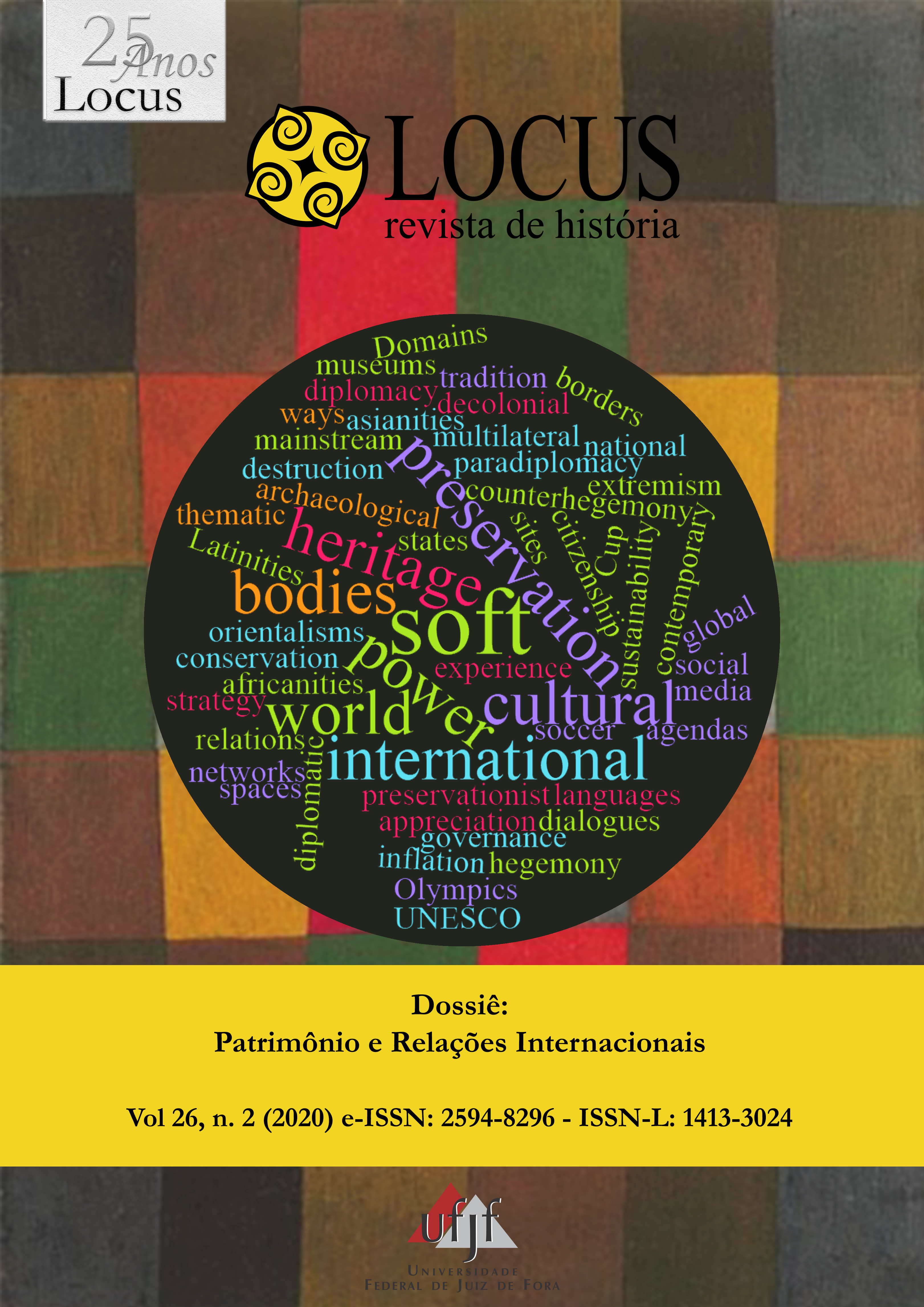Sharing memories and preserving heritage in Latin American port cities: A project in motion: CoopMar –Transoceanic Cooperation, Public Policies and Ibero-American Sociocultural Community
Published 2020-09-10
Versions
- 2021-04-28 (2)
- 2020-09-10 (1)
Keywords
- Port cities,
- Ibero-America,
- Patrimonial diplomacy,
- CoopMar
How to Cite
Abstract
Seaports were, for centuries, the most continuous exchange platform between Europe, Africa and America. Port cities emerge as structures and social constructions with their own characteristics. Taking them as study foci favours the debate of issues related to urban and social complexity, as they usually bring together marks of diversity, both human and cultural, and for this reason they present themselves as privileged places for the development alterity and permeability studies, including cultural. Port cities in Europe and Latin America are also challenged by risks arising from the high levels of development of a tourist industry. This one exploits heritage, material and immaterial, built, symbolic or natural, often without benefits for the makers and heirs of those assets — the local communities. This matter becomes more acute when we are dealing with memories and heritage historically built through colonial dynamics. Many questions arise around the management of these memories and these inheritances. Today communities in Latin America demand recognition of indigenous identities and values and call for different concepts and practices for the preservation of their own memories and heritage. These are the main challenges faced by the project supported by the CoopMar Network, whose objectives, strategies and achievements this article deals with.
Downloads
References
- Curtis, Simon. Global Cities and Global Order. Oxford: Oxford University Press, 2016. https://doi.org/10.1093/acprof:oso/9780198744016.001.0001
- European Commission. 2017. “A new strategy to put culture at the heart of EU international relations”. https://ec.europa.eu/commission/presscorner/detail/en/MEMO_16_2075
- Falser, Michael, e Monica Juneja, eds. “Archaeologizing” Heritage? Transcultural Entanglements between Local Social Practices and Global Virtual Realities. Berlin & Heidelberg: Springer, 2013. https://doi.org/10.1007/978-3-642-35870-8
- Hoyle, Brian. “Urban Waterfront Revitalization in Developing Countries: The Example of Zanzibar’s Stone Town”. Geographical Journal, 168, n. 2 (2002): 141-162. https://doi.org/10.1111/1475-4959.00044
- ICOMOS. 2017. ICOMOS Guidance on Post Trauma Recovery and Reconstruction for World Heritage Cultural Properties. http://openarchive.icomos.org/1763/19/ICOMOS%20Guidance%20on%20Post%20Trauma%20Recovery%20.pdf.
- ICOMOS. 2017. ICOMOS Post Trauma Recovery and Reconstruction for World Heritage Cultural Properties. http://openarchive.icomos.org/1763/19/ICOMOS%20Guidance%20on%20Post%20Trauma%20Recovery%20.pdf
- Luco, Fabienne. “The Angkorian Palimpsest: The Daily Life of Villagers Living on a World Heritage Site”. Em “Archaeologizing” Heritage? Transcultural Entanglements between Local Social Practices and Global Virtual Realities, eds. Michael Falser e Monica Juneja, 251-262. Berlin & Heidelberg: Springer, 2013. https://doi.org/10.1007/978-3-642-35870-8_14
- McAtackney, Laura, e Russell Palmer. “Colonial Institutions: Uses, Subversions, and Material Afterlives”. International Journal History and Archaeology, 20, n. 3 (2016): 471-476. https://doi.org/10.1007/s10761-016-03536
- Parkinson, Arthur, Mark Scott, e Declan Redmond. “Revalorizing Colonial Era Architecture and Townscape Legacies: Memory, Identity and Place-Making in Irish Towns”. Journal of Urban Design, 22, n. 4 (2016): 1-18. https://doi.org/10.1080/13574809.2015.1106917
- Stoler, Ann Laura, ed. Imperial Debris. On Ruins and Ruination. Durham & London: Duke University Press, 2013. https://doi.org/10.1215/9780822395850
- Telles, Edgard Ribeiro. Diplomacia Cultural: seu papel na política externa brasileira. Brasília: Fundação Alexandre Gusmão, 2011.
- Winter, Tim. “Heritage Diplomacy”. International Journal of Heritage Studies, 21, n. 10 (2015): 997-1015. https://doi.org/10.1080/13527258.2015.1041412


